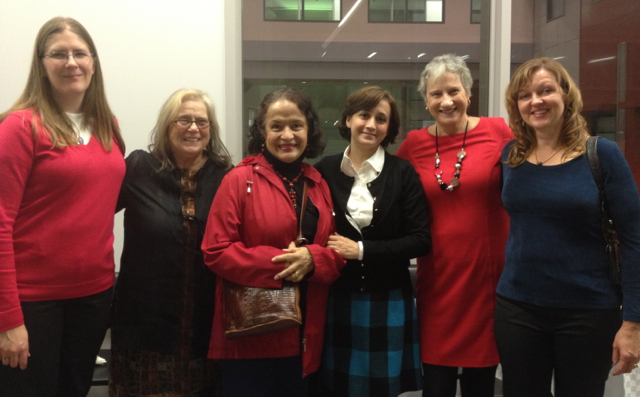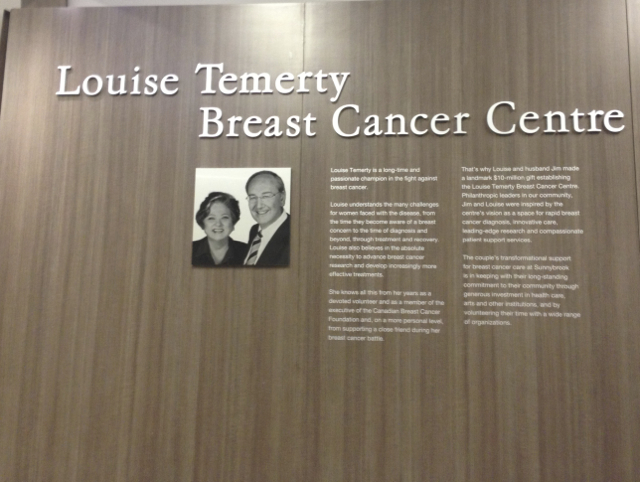MI’s Joel Liederman on CanadaAM to talk product development
Joel Liederman, vice-president of Physical Sciences, appeared on CanadaAM April 5, 2016 to talk about how to make a product. The interview is part of CanadaAM's "What's Next" segment on…
Joel Liederman, vice-president of Physical Sciences, appeared on CanadaAM April 5, 2016 to talk about how to make a product. The interview is part of CanadaAM's "What's Next" segment on…
TORONTO (March 17, 2016) — QD Solar, a Canadian technology company created by the University of Toronto (U of T) and MaRS Innovation, has received $2.55 million from the Sustainable…
TED speaker’s company is changing the technology of emotion and lie detection Consumer-facing market research studies require a group of people, a product or service for them to experience,…
 TORONTO (Dec. 2, 2014) — BlueDot, a Toronto-based social benefit corporation founded by Dr. Kamran Khan, an infectious disease physician and scientist, tracks and predicts the global spread of infectious diseases.
TORONTO (Dec. 2, 2014) — BlueDot, a Toronto-based social benefit corporation founded by Dr. Kamran Khan, an infectious disease physician and scientist, tracks and predicts the global spread of infectious diseases.
Spun off from St. Michael’s Hospital in partnership with MaRS Innovation (and formerly known as BioDiaspora Inc.), BlueDot, has secured a Series A venture capital funding from Horizons Ventures. Funded by Sir Li Ka-shing, Horizons invests in what they call “game-changing disruptive tech,” and has a proven track record in making early-stage investments (i.e., Facebook, Skype, Waze, Siri and Spotify).
TechVibes and MedCity News covered BlueDot’s Series A announcement, as did PE Hub and BetaKit. Read the BlueDot press release here.
The company is the fourth in MaRS Innovation’s portfolio to reach Series A. MaRS Innovation provided $400,000 in seed funding and worked with BlueDot and St. Michael’s to incorporate the company and develop its initial business strategy, intellectual property protection strategy and go-to-market plan. The Ontario Centres of Excellence also provided $140,000 in commercialization grants that helped BlueDot get off the ground.
BlueDot is the commercial arm of Dr. Khan’s academic research program called BioDiaspora, which was developed at the Li Ka Shing Knowledge Institute of St. Michael’s. BioDiaspora models how infectious diseases can spread and impact populations globally by analyzing big data such as the annual movements of more than 3 billion travelers on commercial flights; human, animal and insect population data; climate data from satellites; and news reports of disease outbreaks. The program was inspired by the Toronto’s SARS crisis in 2003 and its capabilities scientifically validated in prestigious academic journals such as the Lancet and the New England Journal of Medicine.

During its development, BlueDot’s platform technology was used by numerous international agencies, including the U.S. Centers for Disease Control, the World Health Organization, the European Centre for Disease Prevention and Control and the Public Health Agency of Canada to evaluate emerging infectious disease threats, including those during global mass gatherings such as the Olympics and the hajj.
THUNDER BAY, ON (May 28,2014) – XLV Diagnostics Inc., a MaRS Innovation (MI) start-up company based in Thunder Bay and specializing in low-cost, next-generation digital mammography machines, has closed a…
Joel Liederman, MaRS Innovation's vice-president of Business Development and Commercialization for physical sciences, is attending BioTransfer 2014 on March 18 to chair the Medical Devices Committee. This is the first year that…
The WaveCheck Indiegogo campaign continues to generate wide support from MaRS Innovation’s community. To give back and show their appreciation, the campaign team hosted a reception at Sunnybrook Health Sciences Centre in the Louise Temerty Breast Cancer Centre on November 6, 2013.


Present were several members of the Women’s Art Association of Canada (WAAC) who donated 11 of the 15 artworks to the campaign. Also present was Dale Butterill, president of WAAC, who expressed support during her opening remarks. Together with members of WAAC, contributing artists donated over $15,000 worth of art to the campaign.

MaRS Innovation’s Vice-President of Business Development and Physical Sciences Joel Liederman, has published an article in the Financial Post about strategies to mitigate risk within the innovation space.
The article, titled “Innovation Success Means Mitigating Risk,” is featured in the newspaper’s Productive Conversations section.

Joel Liederman, MaRS Innovation’s vice-president of Business Development and Physical Sciences, was quoted in a National Post article, published August 13, probing whether Canadian research is passing the commercialization test.
Here’s an excerpt:
While academics have often been accused of being disconnected from the real world and consuming themselves with the theoretical, it’s hard to imagine they would be able to get away with squandering funding dollars on things that make them go hmmm, particularly in light of the hyper focus on fiscal prudence.
Indeed, those who are intimately involved in attempting to bridge the commercialization gap agree that the old system of leaving university professors to their own devices had long ago been shelved in favour of a more judicious approach.
Joel Liederman, vice president of Business Development and Physical Sciences at MaRS Innovation, says there’s no doubt that much of the R&D being performed in Canada never makes it past the patent stage, but not because its origins were founded on theory instead of commercial need.

Joel Liederman, MaRS Innovation’s vice-president of Business Development and Physical Sciences, is participating in a live chat on the Financial Post‘s website.
The chat will take place on June 28, 2012 at 2 pm.
Topic: Why Canada can’t do anything with its big ideas
When it comes to academic research and the development or discovery of new concepts or product models, there are few countries in the world that can hold a candle to Canada.